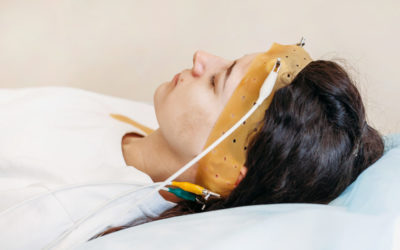Quick Hits
Daily brief research updates from the cognitive sciences

Sleeping well is essential to brain health
I’ve reported many times on different aspects of sleep and how important this is for health in general and for brain health in particular. You can go here for a short review of all the good things sleep does (and the bad things deprivation does!).
However, some people seem to manage perfectly fine on as little as four hours of sleep a night and this is what the researchers at the University of California wanted to know more about.
They have studied people with Familial Natural Short Sleep (FNSS) and identified five genes that contribute to this. And indeed, in this study, with mice it must be said, those with these genes seem to be immune to the degeneration and increased risk of neurodegenerative disorders that is normally associated with sleep deprivation.
This shows that the amount of sleep we need is genetically different, and those short sleepers can reap the benefits of a good night’s sleep in as much as half the time as others. However, be warned of convincing yourself that you are a short sleeper, if you are not, it will be bad for your brain.
But the takeaway is that sleep patterns are driven by genetics, and you will have to find out what works for you best.
My experience tells me that 7.25 hours is what I need, and that is what I try to get…with some natural variation of course. And more research (published after I had written the above) has shown how much this is. I seem to be pretty spot on with my sleeping habits!

Andy Habermacher
Andy is author of leading brains Review, Neuroleadership, and multiple other books. He has been intensively involved in writing and research into neuroleadership and is considered one of Europe’s leading experts. He is also a well-known public speaker speaking on the brain and human behaviour.
Andy is also a masters athlete (middle distance running) and competes regularly at international competitions (and holds a few national records in his age category).
Reference
Qing Dong, Nicholas W. Gentry, Thomas McMahon, Maya Yamazaki, Lorena Benitez-Rivera, Tammy Wang, Li Gan, Louis Ptáček, Ying-Hui Fu.
Familial natural short sleep mutations reduce Alzheimer pathology in mice.
iScience, 2022; 103964
DOI: 10.1016/j.isci.2022.103964
More Quick Hits
Disagreements Improve Team Perception
We might assume that agreement would be high in high-performing teams – this study shows the opposite…
Brain Cells Adapt to Help You Stay Awake
Falling asleep is a funny thing – you don’t need to think about it when it happens but can cause many people who can’t incredibly frustration…
Dad Brain is Real
We know that mothers go through multiple physical and psychological changes after birth (and before) including change in brain structures but what about fresh fathers?
Mask-Wearing Makes You Better Behaved
This is a fascinating study that shows that wearing masks changes behaviour in subtle but important ways…
Coffee Can Help You Live Longer
Yes, that is good news for you (us) coffee drinkers. This supports plenty of more recent studies which have shown the health benefits of coffee…
Big Kids Die Earlier!
Before you panic – the conclusion in the title is based on research into mice not human beings – but there could potentially be some important insights for us human beings as well.






